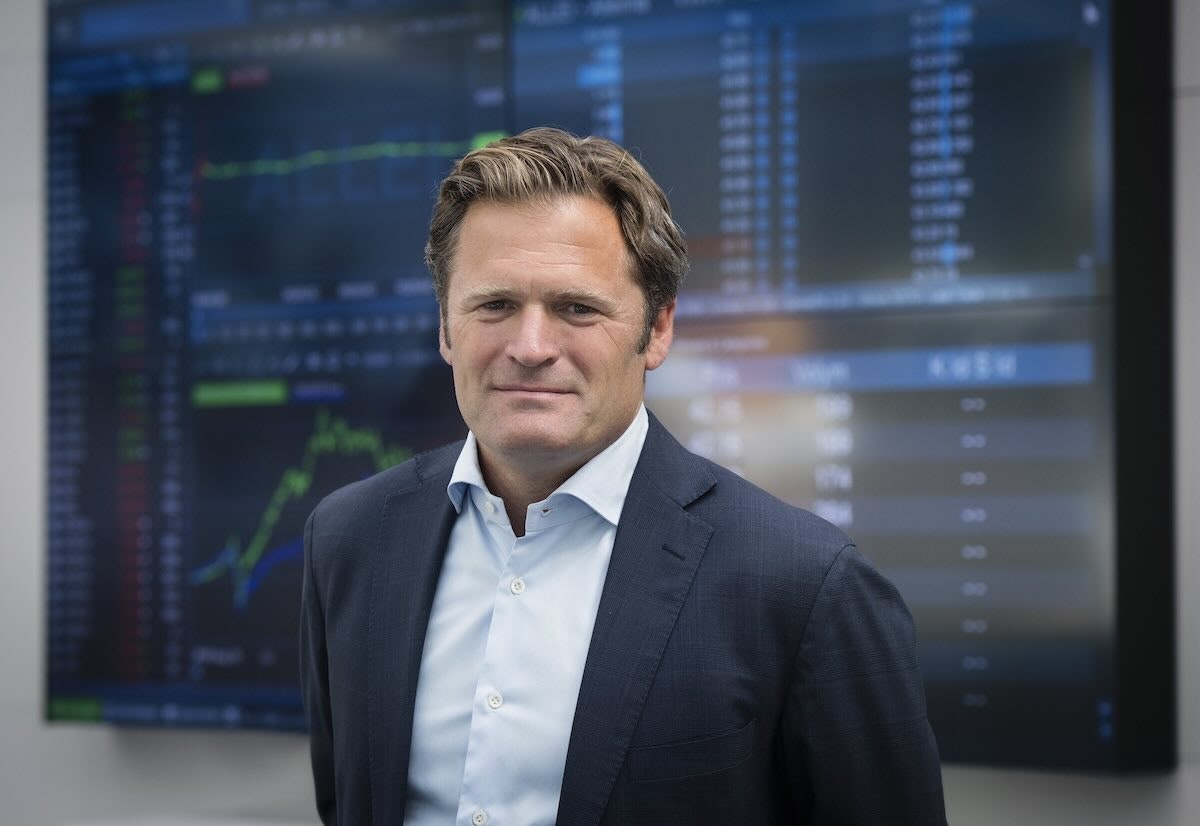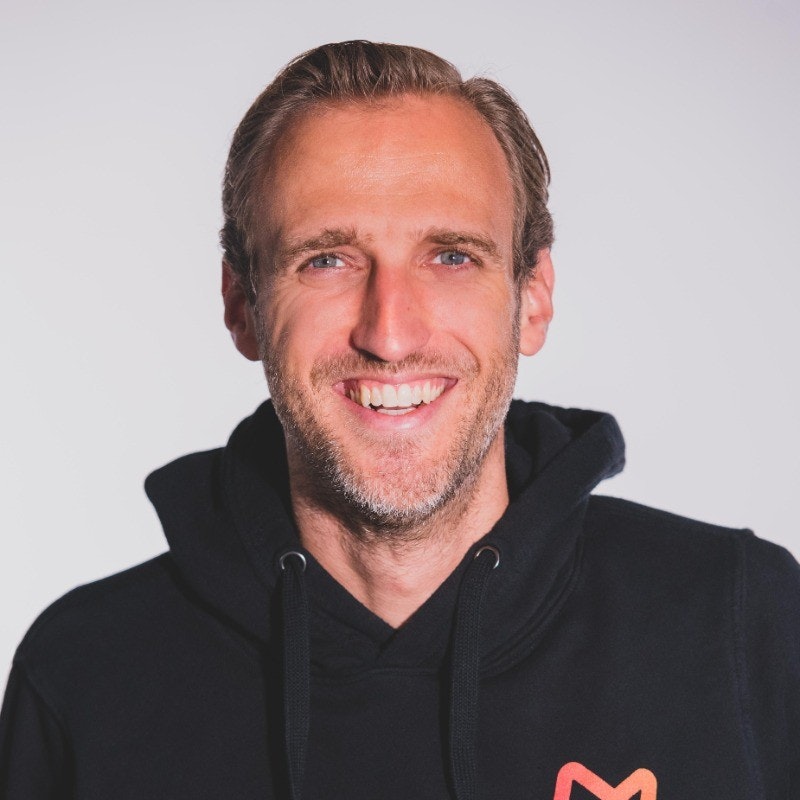Fraud is as old as human history. But the kind faced by financial firms in the 21st century is more sophisticated than ever before.
And that has worked in Hungarian-founded fraud detection startup Seon’s favour.
It’s the customer identification and evaluation of choice for Revolut, Wise, NuBank, Patreon and Sorare, and it just attracted $94m in Series B funding to expand globally.
Seon’s latest round — which cofounders Tamas Kadar and Bence Jendruszak tell Sifted was oversubscribed — was led by US-based IVP, previous backers of Snap, Square and Hopin.
They were joined by existing investors Creandum and PortfoLion, as well as a star-studded list of angels from the likes of UiPath, Coinbase and Slack. (We’ve got the full list at the bottom of this article.)
In five years we want to become the go-to global solution for any online business to prevent fraud
Although Seon is not disclosing its valuation at this round, cofounder and CEO Kadar tells Sifted that it's increased "more than eight times" since their Series A in March last year, but that the company is still a touch off unicorn status.
Seon now plans to concentrate on scaling in the US — currently its smallest market, worth just 10% of revenue — where COO Jendruszak is planning to relocate as it doubles its team on the ground.
“In five years we want to become the go-to global solution for any online business to prevent fraud,” Kadar tells Sifted.
Global to Seon means “anywhere but China and Russia”, owing to the challenges their different internet and social media laws pose to Seon’s online identity tracking.
“This vision of course requires us to focus on the US next — ecommerce is huge there," Kadar says.
“We believe that with our product, we can really take it on. We’re humbled to be called the ‘Stripe for fraud prevention’ by our peers.”
‘Crazy’ growth
University friends Kadar and Jendruszak began developing what would become Seon while working on a crypto exchange venture in 2015 that was targeted by a slew of fake accounts.
To stop these attacks, they built their own solution to detect false accounts and quash fraudulent transactions. That became Seon, which they launched in 2017.
“For the past couple of years we’ve tripled our revenue year-on-year, and have been onboarding new clients and expanding like crazy into new markets,” says Jendruszak.
In the next 12 months, Seon plans to increase its headcount by 150 people in total, doubling its teams in London and Jakarta, adding another 80 to 90 people in its founding location Budapest, and doubling its team in the US.
Making it in America
While the US might be their main target for now, gaining market share in US fraud prevention is no easy task. More established competitors in the market include $4.5bn Socure as well as Ravelin, Sift and Riskified.
“It’s an amazing, massive market, but there's really big competition in the US. Fraud is a huge issue there because people have been paying with credit cards for so long,” says Kadar.
Seon believes it can compete because it’s already conquered the more varied regulatory landscape of Europe — which Kadar says US rivals are struggling to tackle.
But it may struggle to compete with Socure’s 1,000-strong customer base, which includes four of the five largest banks in the world (Seon doesn't intend to work with traditional banks anytime soon, because of their less digital-native operations).
There's really big competition in the US. Fraud is a huge issue there because people have been paying with credit cards for so long
What’s more, in Europe, Seon is ISO 27 001 certified — an accreditation for its information security services. But it’s not yet been granted the US equivalent.
Jendruszak won't confirm specific acquisition targets, but is keen to explain that they will be instrumental to the company’s plans to move beyond know-your-customer (KYC).
“In the very large space that we're operating in, we want to focus on widening our portfolio of products,” Jendruszak says.
The company is plotting a move into anti-money laundering products on the consumer side, sanction checking, politically exposed person checking, and is also evaluating how it can begin offering risk analysis and even digital footprinting products to evaluate businesses as well as consumers.
“With any acquisitions it will be about finding shortcuts for launching these products,” Jendruszak says.
“This might be through finding earlier-stage businesses that haven’t grown so much on the commercial side, but are focusing on a really great product.
“We definitely wouldn’t go for companies that are really enterprise-focused, where most of our competitors are, but rather are small or medium-sized and have a perfect solution for our go-to-market.”
As easy as pressing play...
Seon operates on a usage-based pricing model, foregoing integration fees and instead charging customers each month based on how many transactions they make.
It uses machine learning to track data points that clients can customise according to their trouble areas.
We want to make Seon as easily accessible to fraud and risk managers as pressing play on Netflix is
This might be, for example, tracing whether an email address used for a new account was just opened a few minutes before account registration, or whether a phone number has been used for multiple applications.
“We want to make Seon as easily accessible to fraud and risk managers as pressing play on Netflix is for you and me to watch a movie,” says Kadar.
Or is it?
This easy online access, requiring no face-to-face meetings to set up, begs the question: how impenetrable can adding another online API layer to your fraud checks really be?
Financial fraud soared during the pandemic when in-person verification was all but halted — indicating that online fraud verification software still has a long way to go.
Experts have previously told Sifted that there are still multiple ways of undermining the processes that APIs like Seon's provide. When run online, every single layer of the value chain can be exploited. This means Seon will be stuck in its own game of cat and mouse with fraudsters, too.
Kadar acknowledges that this is the inherent, constant battle. “In the case of reported false negatives or positives, the client can inform us via an API or manually,” he says. “We then retrain the algorithm based on this feedback, to cover new patterns and improve on the algorithm.”
The stakes are high. No fintech wants customer trust undermined from revelations like that of PayPal’s in February, when it was forced to disclose it had 4.5m “illegitimate” or fake accounts on its network.
You only need to look to the US to see how some fintechs have paid the price. Neobank Chime and payment app CashApp have been blocked from rental companies due to fraud issues, while trading giant Robinhood has also suffered serious fraud losses.
It’s a big cross for companies like Seon to bear, and as it expands its product offering from customer accounts to business risks, the stakes are only going to get higher.
SEON’s latest angels list:
- Emille Choi, president and COO of Coinbase
- Oskari Saarenmaa, cofounder and CEO of Aiven
- Olivier Pomel, cofounder and CEO of DataDog
- Amit Agarwal, CPO of DataDog
- Gokul Rajaram, product and business executive at DoorDash
- Godard Abel, cofounder and CEO of G2
- Tamar Yehoshua, CPO of Slack
- Ilkka Paananen, cofounder and CEO of Supercell
- Daniel Dines, founder and CEO of UiPath
- Kaarel Kotkas, founder and CEO of Veriff
- Harsh Sinha, CTO of Wise
- Paul St. John, former VP of worldwide sales at Github
- Stephen Sikes, COO of Public
- Praveer Melwani, head of business operations and finance at Figma



